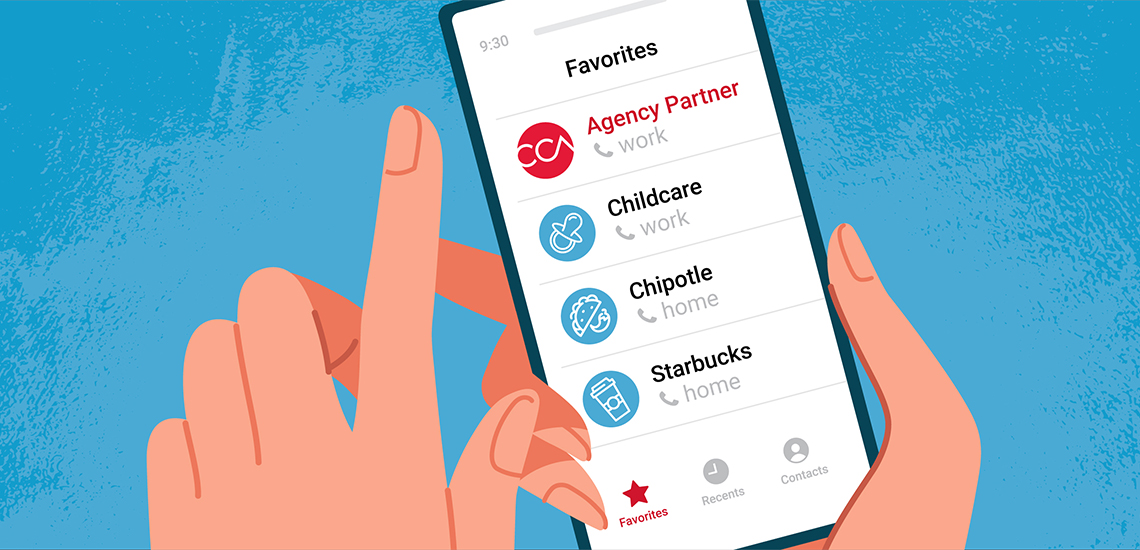
Top 5 Reasons Why Agency Retainers Work for Higher Education
As relationships with our clients have continued to evolve, one tremendous benefit that we have seen is the establishment of a monthly retainer agreement as part of our yearly scope of work.
What is a marketing agency retainer?
A retainer is a set of agency hours that is billed to the client monthly and is usually set up in durations of 3, 6, or 12 months.
Some agencies may disagree on how beneficial retainers can be, but in the world of higher ed — where budget dollars are precious and procurement offices are ever-present — they can make life a whole lot easier for our client partners. Plus, when we set up a retainer agreement with a client, we ensure that our team sets aside time in their schedules to be at the ready for any needs that come through.
Here are a few reasons to consider implementing a retainer with your marketing agency:
1. Flexibility and Accessibility
Retainers allow us to respond to client needs nimbly and efficiently. If there’s one thing that the pandemic has shown us, it is that we must be flexible and able to respond quickly as needs arise.
A retainer allows a client to tap into their agency for ad-hoc projects without needing to spend time developing a project plan and scope of work before work can begin. A few examples of retainer projects we were able to quickly and efficiently work on for our clients:
- Change in ad copy after they pushed their application deadline
- A postcard announcing new visit options
- A presentation deck for an upcoming board meeting
- A t-shirt design for a faculty member and his students
- Quick ideas to encourage last-minute apps
- Graphics to celebrate milestone anniversaries
- Nurture emails for a specific untapped audience
2. Cost Efficiencies
When considering a retainer agreement with your agency, ask them if they offer a discounted hourly rate if you sign on for six months or a year. Most agencies will grant a blended hourly rate. CCA, for one, grants a 5-10% discount depending on the length of the retainer.
3. A Smoother Approval Process
When requesting a new project from your agency, especially when estimating the cost, you will likely incur some back-and-forth. Not only does your team have to approve, but in most cases with higher ed, the procurement officer also has to give the green light.
With a retainer, the contract is already signed off on, and the budget is established. So, when a client needs a new landing page or a refresh to a paid social ad, they can skip to the front of the line and avoid lengthy negotiations. The agency can focus on building and executing the request, and the client is assured of no surprises.
4. Endless Optimization
A retainer allows for nearly endless optimization. At CCA, we develop robust media campaigns (see our services here) for many of our clients. If creative tweaks or tactical changes are needed based on the goals and objectives of the campaign, they can be made without detracting from the media budget.
For example, a client recently requested adding social ads for their transfer audience to their original media campaign. This was not planned for in the original media budget, but we were able to use the retainer to fulfill the request.
5. True Sense of Partnership
We’ve had partners with and without retainers, and we can say this without a doubt: They receive from us the best, most effective work we can produce, no matter what their retainer situation.
That said, we’ve found that with partners who do have a retainer, we get to know them on a whole other level. Their use of the retainer often reveals goals and challenges they didn’t even know they had—or just didn’t place emphasis on given the “more important” projects. Often, they’ll even use retainer dollars for departments across campus, which further brings us into the fold and makes us even more a part of the team. This allows us to problem solve or generate ideas almost at the drop of a hat, because we know so much more about their wants and needs and how their team operates.
Want some more information about CCA?
